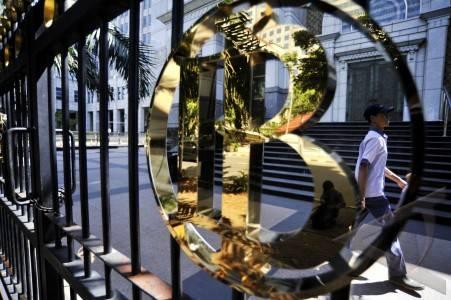Indonesia trade surplus seen narrowing, inflation to ease
Bareksa • 29 Apr 2014

Bank Indonesia - (Bisnis.com)
To support the improvement in the current account balance, policymakers are trying to dampen imports
Bareksa.com - Indonesia's trade surplus probably narrowed in March as exports stayed sluggish, but inflation has likely eased further, a Reuters poll showed, giving the central bank room to keep rates steady at its meeting next week.
Southeast Asia's biggest economy probably had a trade surplus of $500 million in March, down from a $790 million surplus a month earlier, the poll of analysts showed.
Inflation is seen easing to 7.25 percent year-on-year in April from 7.32 percent in the previous month, according to the poll, as prices declined after the start of the harvest season.
"BI is still likely to keep its interest rate unchanged for now. No reason to do the otherwise. Inflation has been easing, but the current account deficit still lingers," said Gundy Cahyadi, an economist at DBS in Singapore.
Bank Indonesia raised rates aggressively in 2013 to help prop up the rupiah, which had plunged on worries over the country's large current account deficit and other economic issues.
The central bank has kept its key reference rate steady at 7.50 percent since December as the current account deficit has improved and the rupiah has rebounded.
But it has stressed it will keep a tight monetary policy this year to continue to support the improvement in the current-account balance. Its next policy review will be on May 8.
Bank Indonesia is targeting a more sustainable current-account deficit this year of under 3 percent of gross domestic product, against 3.3 percent in 2013.
The widest measure of the flow of goods, services and money in and out of the country had hit a record deficit of 4.4 percent in April-June last year.
To support the improvement in the current account balance, policymakers are trying to dampen imports.
In March, exports are expected to have fallen 1.30 percent from a year earlier on declining coal prices. Imports are seen down a steeper 4.50 percent, after a 9.98 percent fall in the previous month, the poll showed.
Meanwhile, analysts forecast core inflation, which excludes administered prices and volatile food prices, to have quickened slightly to 4.67 percent in April from 4.61 percent in March (Source : Reuters)